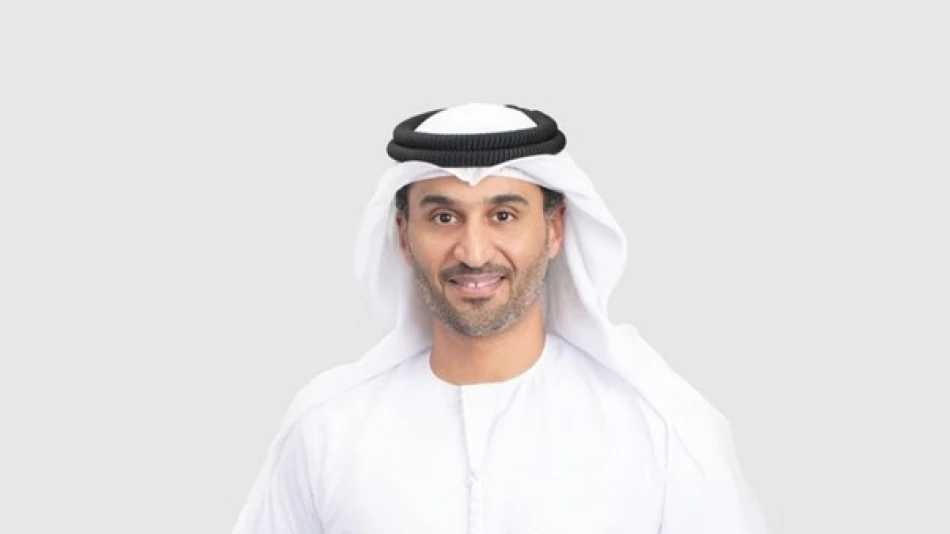
Emirati Financial Institute Appoints Marwan Al-Muhairbi as New Director General
UAE Financial Institute Taps Banking Veteran to Drive Emiratization Push
The Emirates Financial Institute has appointed Marwan Al Muhairi as its new General Manager, signaling an intensified focus on developing local talent to fill senior positions across the UAE's rapidly expanding financial sector. The move comes as the Gulf state accelerates efforts to reduce dependence on foreign expertise while building a knowledge-based economy.
Strategic Leadership for Financial Sector Transformation
Al Muhairi brings over 23 years of experience in global banking and financial services to the role, with a proven track record in leading transformational projects across international markets. His appointment positions the institute to advance its core mission of developing world-class financial education and professional development programs.
The timing of this leadership change reflects the UAE's broader economic strategy. As Dubai and Abu Dhabi compete with Singapore and Hong Kong as regional financial hubs, the need for homegrown expertise has become critical. The institute's focus on "Emiratization" – the policy of replacing expatriate workers with UAE nationals – mirrors similar talent localization efforts across the Gulf Cooperation Council states.
Building Local Capacity in a Global Financial Hub
Al Muhairi's mandate centers on developing strategic initiatives that align with the UAE's vision of creating a knowledge-based economy. This involves not just training programs, but fundamentally reshaping how the country develops financial sector leadership.
The Emiratization Challenge
The UAE's financial sector has historically relied heavily on international talent, particularly from Western markets and other regional hubs. However, recent regulatory changes and economic diversification goals have created pressure to develop local expertise. The Central Bank of the UAE has implemented quotas requiring banks to maintain certain percentages of Emirati employees, making institutions like the Emirates Financial Institute increasingly vital.
Market Implications
For financial institutions operating in the UAE, Al Muhairi's appointment signals a more structured approach to talent development. Banks and investment firms will likely see enhanced training programs and clearer pathways for developing local leadership. This could reduce long-term recruitment costs while ensuring regulatory compliance with Emiratization requirements.
Regional Context and Competition
The UAE's focus on financial sector talent development comes as regional competition intensifies. Saudi Arabia's Vision 2030 includes similar goals for developing local financial expertise, while Qatar and Bahrain have launched their own capacity-building initiatives. The success of the Emirates Financial Institute under Al Muhairi's leadership could determine whether the UAE maintains its edge as the region's premier financial center.
Unlike Singapore's approach, which continues to welcome international talent while building local capacity, the UAE is taking a more nationalist approach. This strategy carries both opportunities and risks – while it builds domestic expertise, it could potentially limit access to global best practices if not carefully managed.
Innovation in Financial Education
Al Muhairi's background in transformational projects suggests the institute may adopt new approaches to financial education, potentially incorporating fintech, digital banking, and sustainable finance into its curriculum. As the UAE positions itself as a hub for cryptocurrency and blockchain innovation, developing local expertise in these emerging areas becomes crucial for maintaining competitive advantage.
Most Viewed News

 Layla Al Mansoori
Layla Al Mansoori






